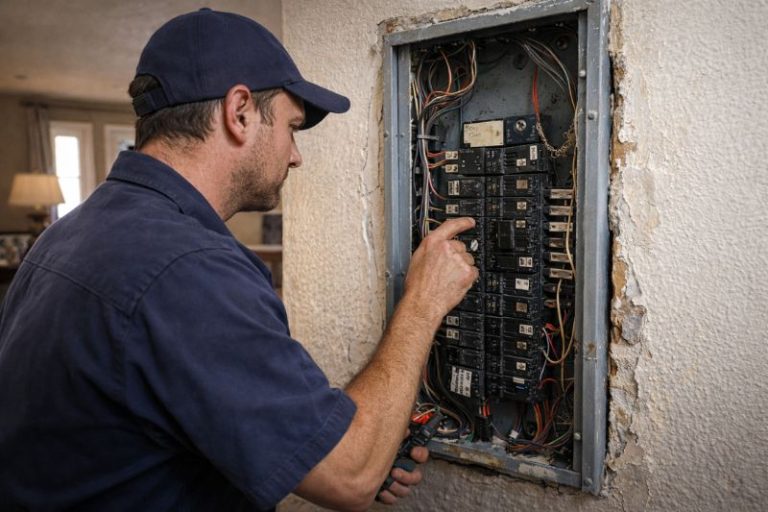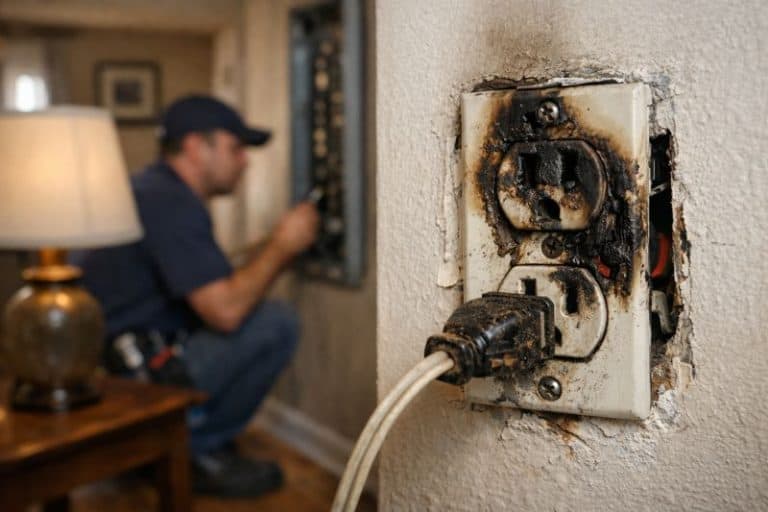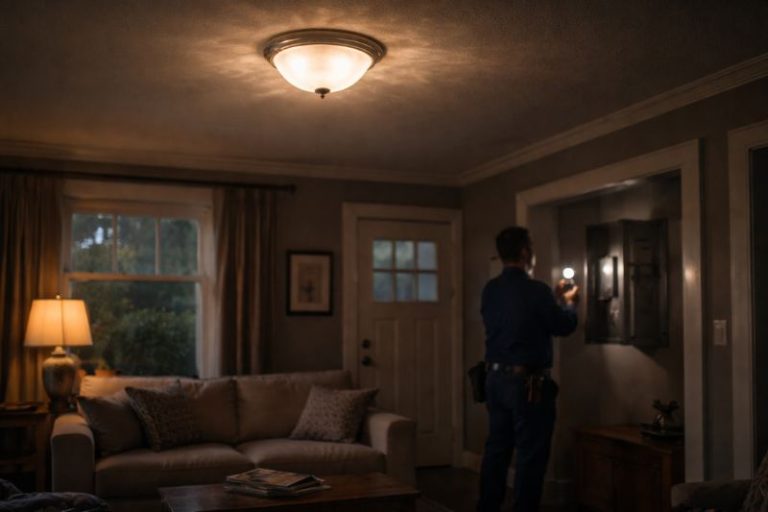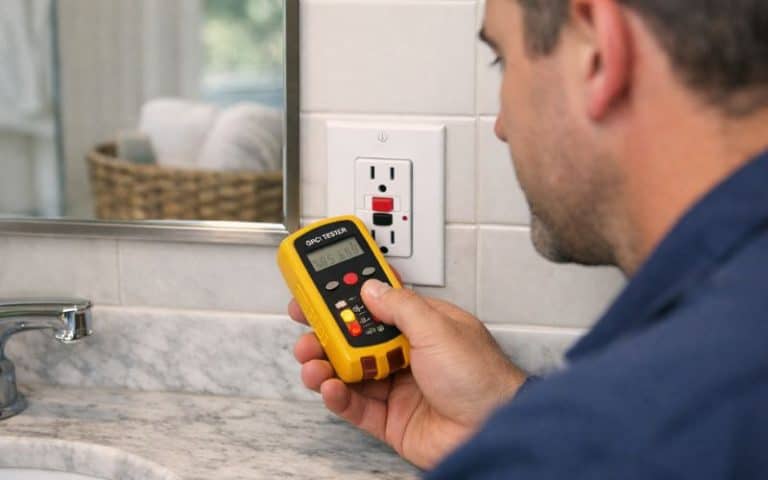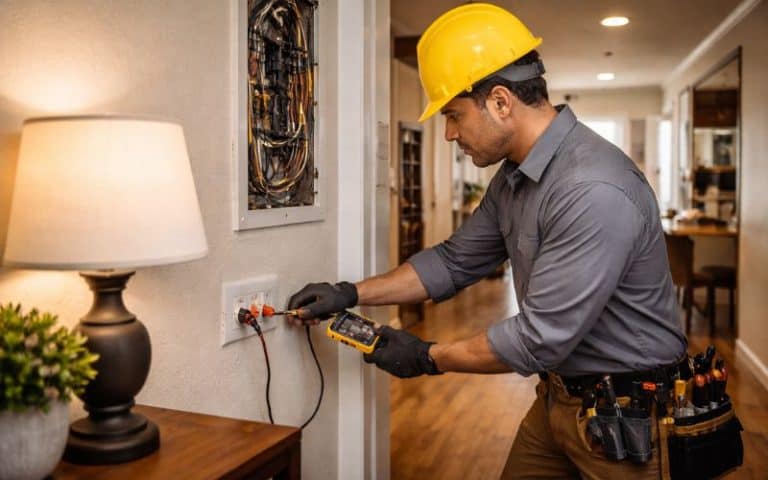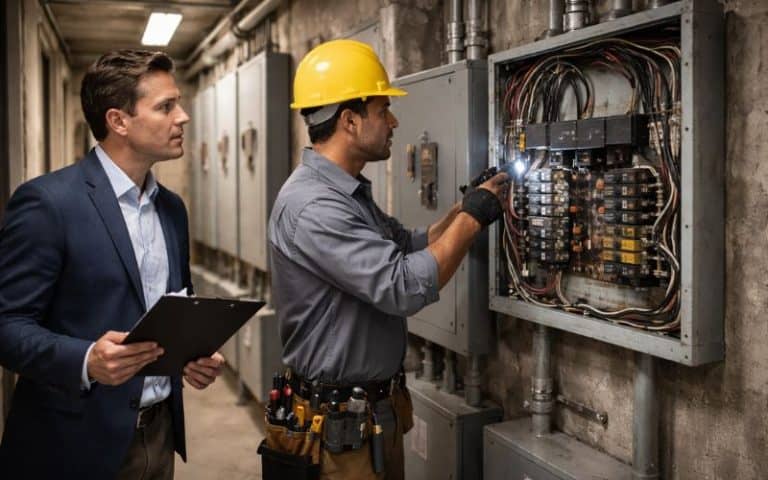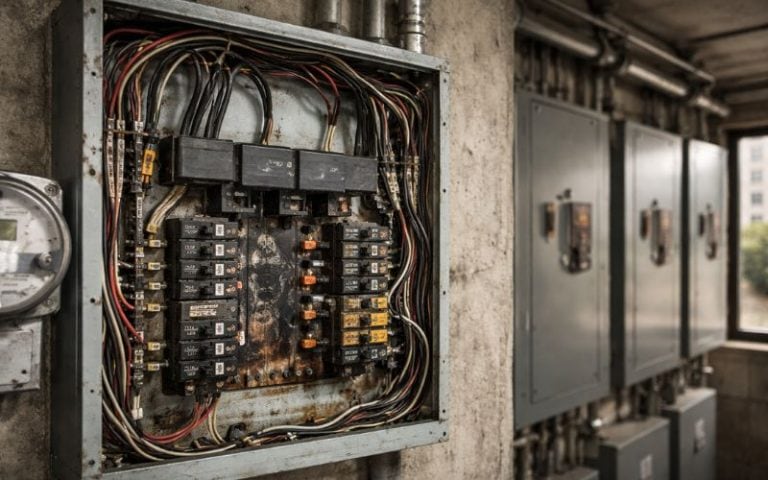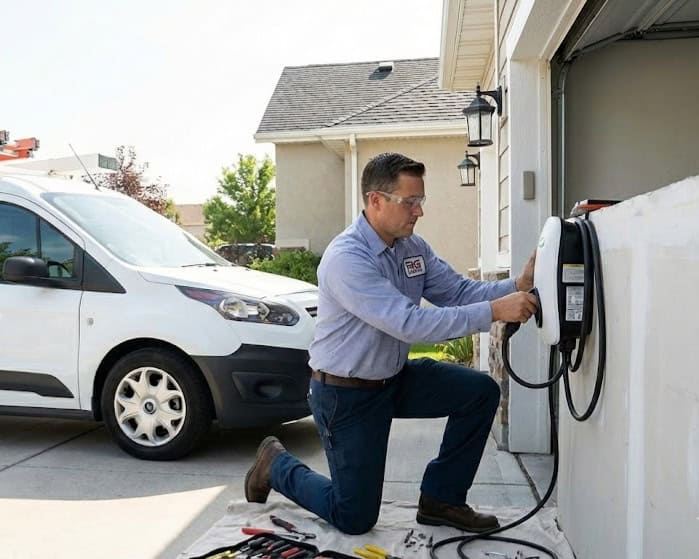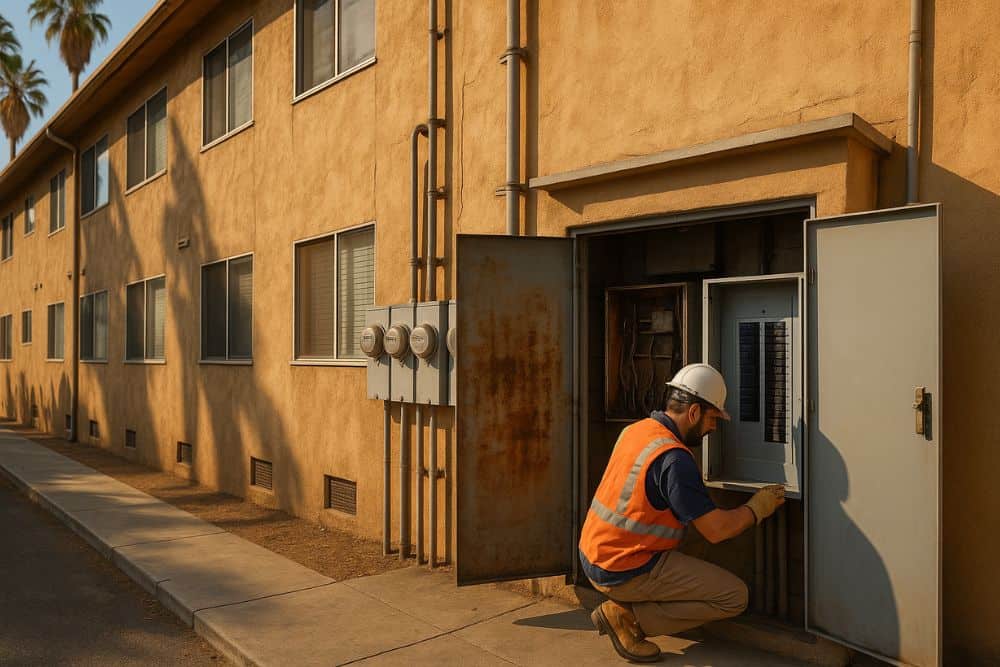
The Hidden Costs of Delaying Electrical Repairs in Multi-Unit Buildings
For Los Angeles property managers, electrical issues often fall into the “deal with it later” category. A breaker that trips now and then, a buzzing outlet in a tenant’s kitchen, or a hallway light that flickers occasionally, these seem like small annoyances, not emergencies. But when it comes to electrical systems in multi-unit buildings, delay almost always leads to damage.
In a city where aging infrastructure meets high energy demands, the cost of ignoring minor electrical issues can escalate quickly. From increased risk of fire and property damage to emergency service fees, failed inspections, or even lawsuits, delayed electrical repairs can impact your bottom line and your tenants’ safety.
This article breaks down the real-world consequences of deferring electrical repairs, and shows how working with RG Electric can help you stay ahead of problems, before they become liabilities.
Common Electrical Problems Property Managers Tend to Delay
In a multi-unit building, electrical issues often show up subtly. And because they don’t always shut down a system entirely, they’re easy to ignore. But these small problems can be signs of deeper system weaknesses that, left unaddressed, will worsen over time.
Recurring Breaker Trips or Flickering Lights
When tenants complain about lights dimming or breakers tripping, it may not seem urgent, but it often points to overloaded circuits, loose connections, or failing breakers. These issues create heat and can lead to arcing, panel damage, or in worst cases, electrical fires.
Many managers reset the breaker and move on, missing the opportunity to fix the core issue.
Aging Electrical Panels and Unsafe Components
Outdated panels like Zinsco, Federal Pacific, or Challenger are still common in older LA apartments. These panels are known for failing to trip during overloads, allowing circuits to overheat silently. Managers may delay replacement because the panel “still works,” but that decision carries high fire and insurance risks.
GFCI or AFCI Failures
Modern codes require GFCI and AFCI protection in kitchens, bathrooms, outdoor areas, and bedrooms, especially in rental units. If a GFCI outlet trips constantly or isn’t working at all, it might signal ground faults or improper wiring. Ignoring this puts both tenant safety and code compliance at risk.
Tenant-Added Load That Overwhelms the System
Many tenants install window AC units, space heaters, and other high-draw appliances without notifying management. This can quietly overload circuits, especially in older buildings where wiring and panels weren’t designed for modern energy use.
Delays in addressing these overloads increase the chance of equipment failure and circuit burnout.
Why These Issues Get Ignored
Often, electrical repairs are delayed because they seem minor, costly, or hard to coordinate with tenants. Some managers worry that opening walls or upgrading panels will disrupt residents. Others fear uncovering larger problems that require a permit or inspection.
But the cost of doing nothing, or doing the bare minimum, is almost always higher.
The Real Costs of Delay: More Than Just Repairs
When electrical problems are brushed aside, the financial impact doesn’t just show up in your maintenance budget, it ripples through your entire operation. What starts as a buzzing outlet or flickering light can turn into a failed inspection, a costly emergency call, or a tenant moving out early.
Emergency Repairs Are Always More Expensive
Scheduled electrical work can be done during business hours, with clear timelines and predictable costs. But when a delayed issue turns into a sudden outage or panel failure, you’re now in emergency mode.
After-hours dispatch fees, rush permitting, temporary power setups, and reactive diagnostics can double or triple the cost of a job that could have been handled proactively. Worse, emergency repairs often involve coordinating with utilities, inspectors, or fire departments, which adds further delay and complexity.
Damage Spreads Beyond the Original Problem
A loose connection in a sub-panel doesn’t just affect that one breaker. Over time, heat builds up, conductors deteriorate, and nearby breakers or circuits start to degrade. One ignored issue can eventually damage multiple circuits, requiring panel replacements, rewiring, or equipment replacement.
In tenant units, a failed circuit could take down HVAC, refrigeration, or medical devices, exposing you to loss claims or legal complaints.
Tenant Satisfaction and Retention Declines
Your tenants may not understand the difference between a grounded conductor and a GFCI fault, but they know when the power is unreliable. Frequent electrical issues, even minor ones, erode tenant trust. Complaints pile up, maintenance staff is stretched thin, and tenant turnover becomes more likely.
In a competitive LA rental market, one or two negative reviews tied to electrical problems can impact occupancy and rent rates.
Missed Opportunities for Cost-Effective Upgrades
When you delay electrical repairs, you often miss the chance to upgrade systems in a strategic, cost-saving way. For example, addressing circuit overloads might also be the ideal time to install a sub-panel or add surge protection. But when work is done reactively, you’re focused on quick fixes, not long-term solutions.
RG Electric helps clients bundle small fixes into strategic upgrades that maximize your budget and reduce repeat issues.
Legal, Insurance, and Safety Liabilities
Delaying electrical repairs in a multi-unit building doesn’t just raise maintenance costs, it increases your legal exposure. In Los Angeles, where tenant protection laws are strong and electrical codes are strictly enforced, ignoring known hazards can quickly become a liability issue.
Code Violations Lead to Fines and Failed Inspections
The Los Angeles Department of Building and Safety (LADBS) enforces local compliance with the National Electrical Code (NEC). If you delay repairs that bring your building out of code, such as faulty GFCIs, outdated panels, or improper wiring, you risk failing inspections during permit applications, annual fire inspections, or tenant improvement projects.
In some cases, LADBS may red-tag equipment or issue correction notices that prevent units from being rented or occupied until repairs are completed.
Legal Risk from Tenant Harm or Property Damage
If an electrical issue results in fire, shock, or personal injury, and it’s found that the property owner knew about the problem and failed to act, legal liability can be substantial. This is particularly true for:
- Ignored breaker or outlet complaints
- Known panel defects
- Faults in shared or common-area wiring
- Delayed emergency repairs
California law places a high duty of care on landlords and property managers. A documented failure to maintain electrical systems can lead to personal injury claims, lawsuits, or exposure to class-action litigation in rent-controlled buildings.
Insurance Denial Due to Deferred Repairs
Insurers routinely inspect electrical panels, especially during coverage renewals or claims. If they find hazardous conditions that were reported but not repaired, they may:
- Cancel or refuse to renew your policy
- Deny claims after an incident
- Increase your premiums significantly
Panels made by Zinsco, Federal Pacific, and Challenger are already flagged by most underwriters. Ignoring electrical repairs in buildings with these panels is especially risky.
The National Fire Protection Association (NFPA) reports that electrical distribution systems are among the top causes of residential structure fires nationwide. Many of these incidents are preventable, and insurers know it.
Delaying Electrical Repairs Costs More Than You Think
When you manage a multi-unit property in Los Angeles, you have dozens of responsibilities competing for your attention. It’s easy to push electrical issues to the bottom of the list, especially when they seem minor. But the reality is, small problems don’t stay small. They grow into major liabilities that can cost you thousands of dollars, lost tenants, insurance issues, and damage to your building’s reputation.
Ignoring electrical repairs doesn’t just create operational risk, it can expose you to legal action and insurance denials. It can also lead to long, costly outages that frustrate tenants and hurt your bottom line. And in many cases, those emergencies could have been prevented with a simple service call or routine inspection.
At RG Electric, we help you stay ahead of these risks. We identify warning signs early, explain your options clearly, and get the work done efficiently, without disrupting your tenants or operations. Whether you need a panel upgrade, emergency service, or a full property evaluation, we’ll help you stay compliant, safe, and fully powered.
Don’t wait for the next outage, complaint, or inspection notice. Let RG Electric protect your building before small problems turn into major repairs.
📞 Call RG Electric at (323) 521‑5131

